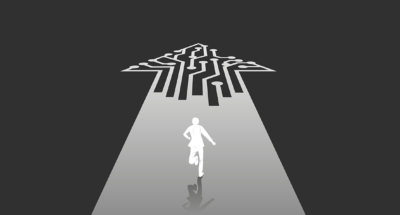
Brain Circuits
What ripples do you create?
by Francesca Giulia Mereu Published March 17, 2025 in Brain Circuits • 3 min read
Other people react to the ‘ripples’ we send out – speech, words, messages, facial expressions – by feeling energized and inspired, or drained and demotivated accordingly. Francesca Giulia Mereu explains how one drop of your energy can go a long way to creating positivity, especially in the digital arena.
How our energy impacts others: three research-based facts
1. We are pack animals
We are wired to watch others and long to belong to – or at least be acknowledged by –our tribe of choice: family, team, clients, bosses.
2. Our physiology changes when we interact with others
Our physiology – brain waves, heart rate, adrenalin production – changes when we interact with others, and a growing body of evidence shows that we synchronize nonverbal expressions and the physiological mechanisms underlying them, potentially influencing cooperation (see Physiological synchrony is associated with cooperative success in real-life interactions).
3. Negativity bias
Our ‘negative’ energy – bad mood, harsh words, unpleasant behaviors – on average affects others four times more powerfully than our positive energy due to negativity bias (see How good leaders can be bad role models).
Three ways to send out positive ripples
1. Mind your voice
While your body language is less visible on video, your voice is even more important. Keep your voice friendly and engaging, and find out how your ‘everyday’ voice comes across by asking trusted friends.
2. Check your resting face
When you listen, especially during a video call, what feelings does your ‘resting’ face convey? It might come across as sad, skeptical, or disengaged, although you are simply listening. Ask others what reactions your resting face inspires in them, and observe it yourself by watching recordings.
3. Tweak your messages
We send and receive multiple messages every day. Have you ever stopped to consider what ‘tone’ yours have? Create a positive ripple with a kind remark, cheerful sign-off, or emoji. These small gestures go a long way to creating a more positive and encouraging digital environment.
Key takeaway
Next time you send an email or attend an online meeting, consider what ripples you’re sending out. It doesn’t require a lot of your energy – it simply means being mindful about your ‘drops’ in order to build a more positive and energizing environment for yourself and the people around you.
Authors

Francesca Giulia Mereu
Executive coach
An executive coach with over 25 years of experience, she is also the author of Recharge Your Batteries and a certified yoga teacher. Her “Energy Check” is available online. She regularly works with the Center of Competence on Humanitarian Negotiation (CCHN) and at IMD with senior leaders of global organizations. Follow her LinkedIn Group on managing your energy.
Related

Moving sustainability business decisions from the periphery to the core
11 hours ago in Brain Circuits
While sustainability is indeed becoming more important for boards and executives around the world, this is not yet a sign that co-creation of commercial and societal value in a firm’s decision-making is...

Why your well-being initiatives aren’t working – and how to fix them
May 23, 2025 in Brain Circuits
It takes more than a few yoga classes to tackle the problems of burnout, financial stress, and poor mental and physical health. Consult the checklist to gauge the effectiveness of your current...

Lessons in digital transformation from industry
May 22, 2025 in Brain Circuits
In an interview with IMD’s Didier Bonnet, aerospace veteran Mike Ambrose shared his insights on pulling off a successful digital transformation in one of the world’s most complex industries....